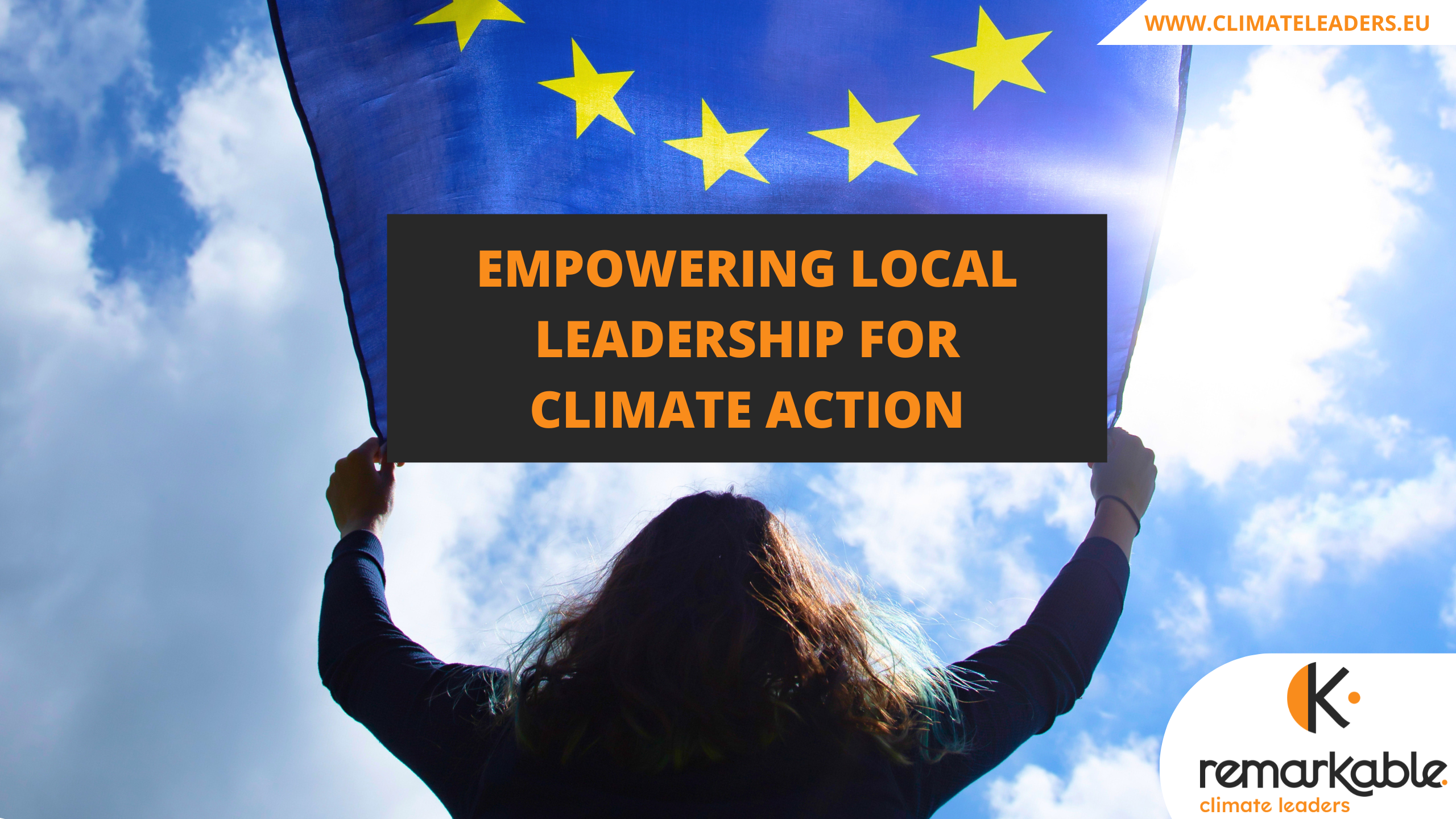Empowering Local Leadership for Climate Action: A Guide for EU Policymakers
Local leaders are essential in translating the EU’s climate goals into actionable strategies within their communities, bridging the gap between high-level objectives and on-the-ground implementation.

The “Guidebook for EU Policy Makers on Empowering Local Leadership” provides a comprehensive framework to strengthen local leaders’ roles in advancing Europe toward climate neutrality by 2050.
The guide draws from the REMARKABLE Climate Leaders project, which emphasizes the unique qualities of effective local climate leaders: strategic vision, the ability to inspire, and the skill to engage diverse stakeholders. Despite their essential role, local leaders face challenges such as limited resources and complex stakeholder dynamics. To support them, the guidebook recommends solutions such as the Climate Leadership Programme (CLP), which provides targeted training, and Climate Neutrality Roadmaps that offer clear, actionable steps toward climate goals. Networks like the REMARKABLE Leaders Circle further bolster leaders by enabling collaboration and knowledge sharing.
The guidebook outlines several strategic recommendations for fostering local leadership in climate action:
- Integrating Climate Action into Governance: Moving from a siloed approach to an integrated, cross-departmental strategy ensures that climate action becomes a core element of local governance.
- Fostering Innovation and Collaboration: By encouraging experimentation with new technologies, policies, and collaboration, local authorities can advance climate action. Innovation accelerates the adoption of effective climate strategies, particularly when leaders can share best practices.
- Prioritizing Equity and Inclusion: Effective climate leadership includes all community members, especially vulnerable or marginalized groups, in decision-making. Inclusive approaches promote social equity and strengthen community resilience to climate impacts.
- Promoting Continuous Learning and Adaptation: The evolving nature of climate challenges requires frameworks for continuous learning and adaptation, allowing leaders to stay effective as new conditions and information emerge.
- Strengthening Monitoring and Evaluation (M&E): Robust M&E systems are critical to track progress, assess the impact of actions, and make necessary adjustments. Clear criteria and methodologies for M&E help local authorities measure their progress toward climate neutrality.
These strategies, supported by insights from the REMARKABLE Climate Leaders Podcast, underscore the importance of a well-defined local strategy, community engagement, resilience, and adaptability. Case studies in the guide highlight practical applications of leadership principles across different contexts, providing adaptable insights for other regions.
By applying these guidelines, EU policymakers can enhance local leaders’ capacity to drive climate action, ensuring Europe’s transition to climate neutrality is inclusive, innovative, and effective. Investing in local leadership not only accelerates progress but also establishes a foundation for sustained, impactful climate action at the community level.

REMARKABLE Climate Leaders will build new leadership capacity across Europe through a Climate Leadership Programme designed with and for climate leaders. Through a people-centred approach, Regional Energy Agencies will support leaders of public authorities and communities in implementing transformational roadmaps and innovative solutions to achieve climate neutrality.